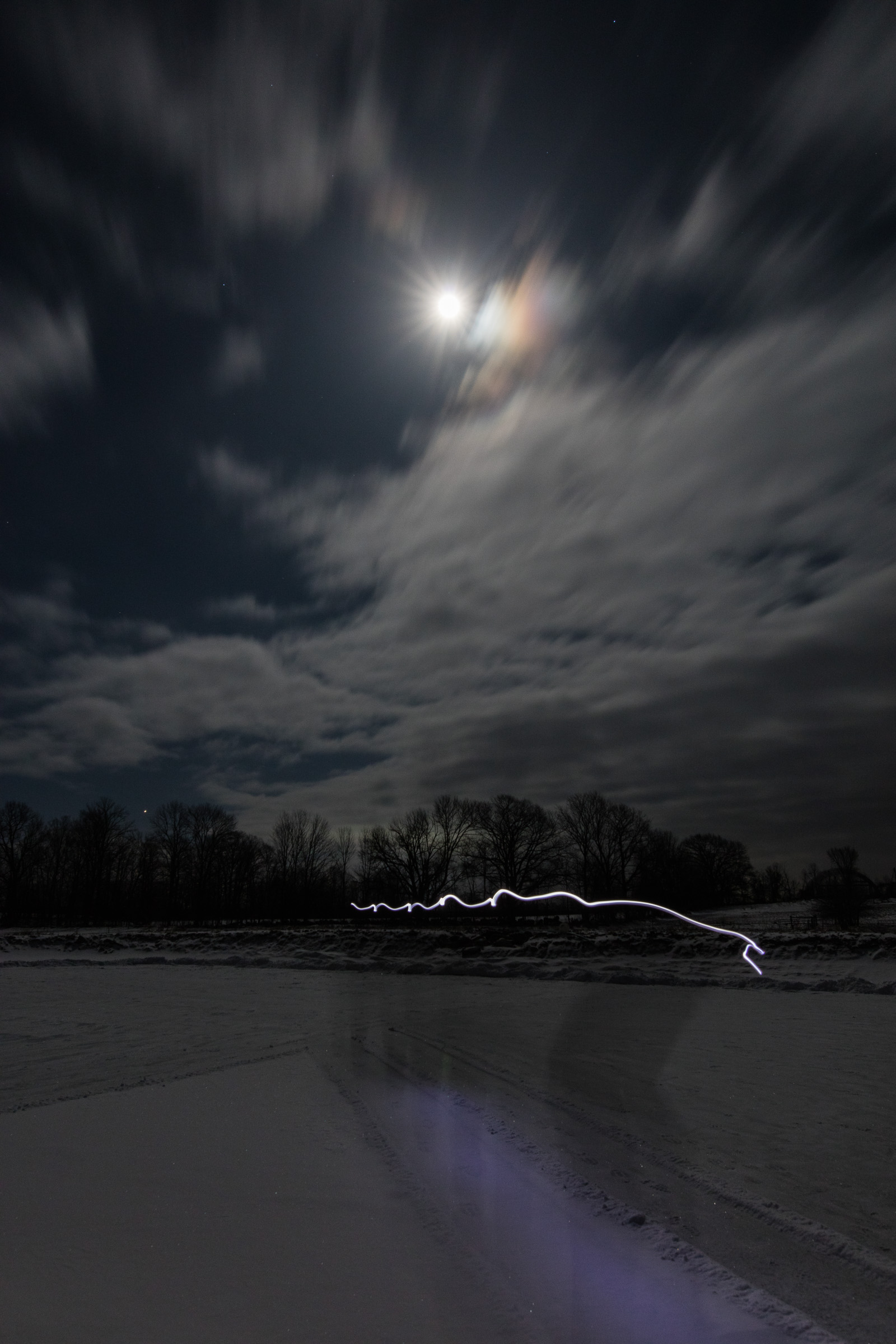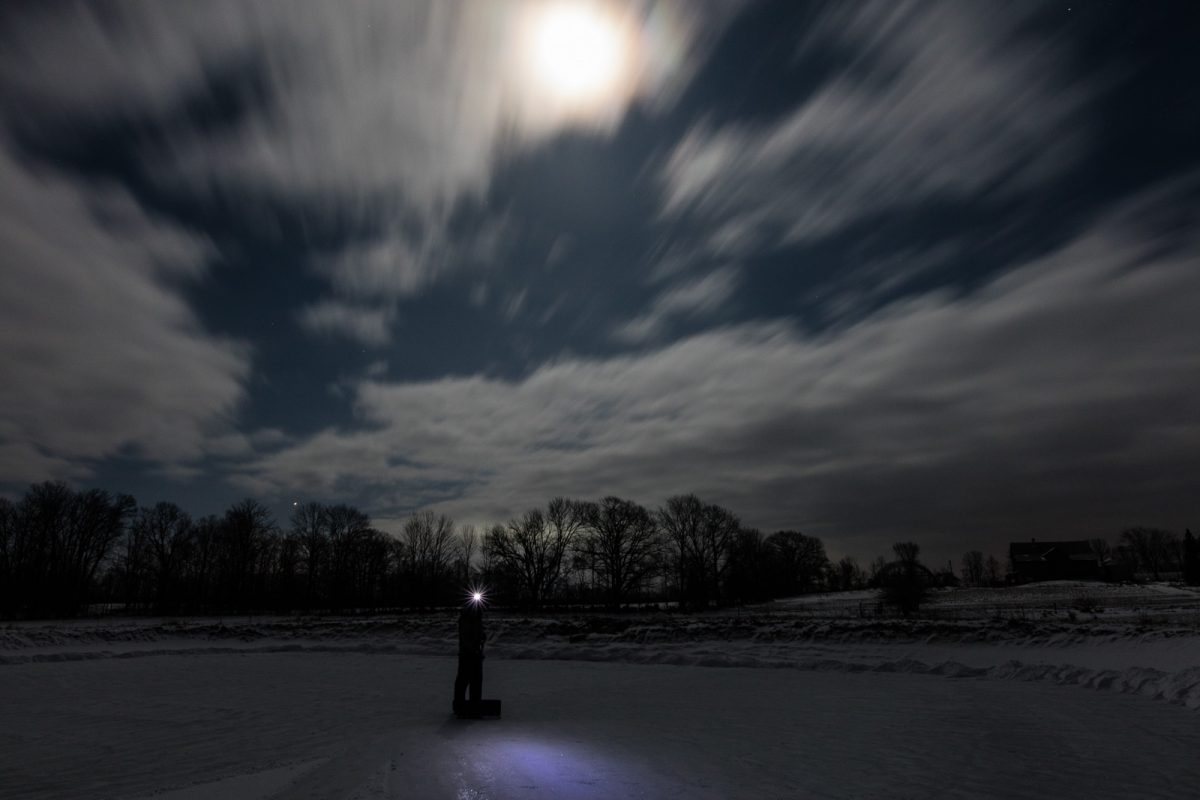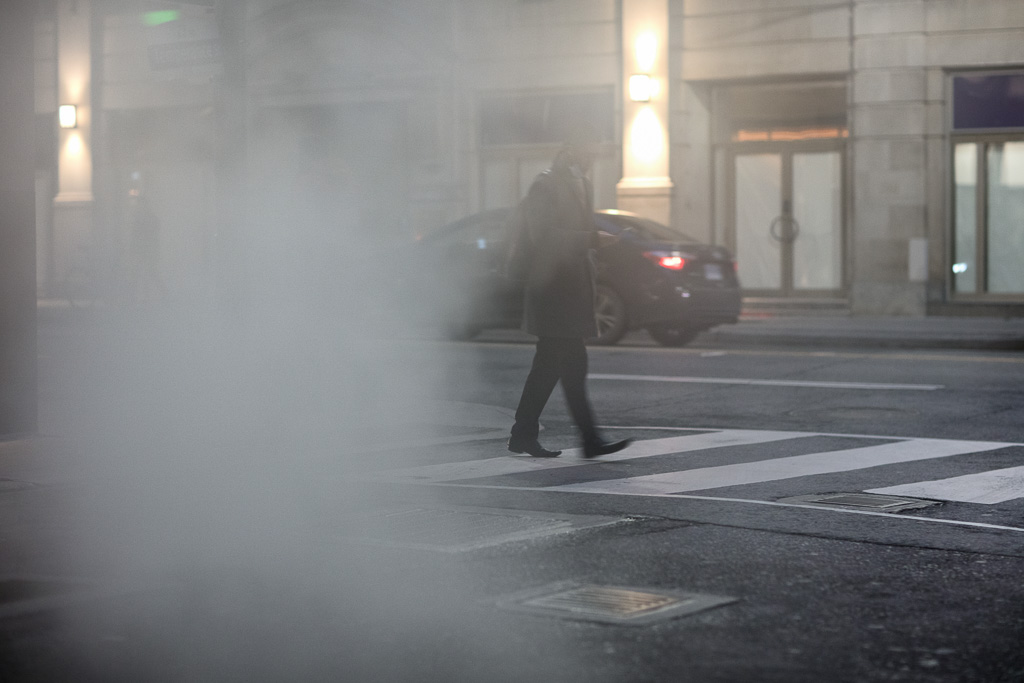A 13 second exposure on the evening of a full moon while the clouds scud overhead. My brother-in-law is shoveling the pond so the kids can go skating. He wears an LED head lamp and, when I ask him to hold still, miraculously manages to keep the head lamp still for the full 13 seconds. When he’s done shoveling, he’ll augur a hole in the ice and pump water from underneath to create a smooth glassy surface. This is how you do it when you don’t have a zamboni.
It strikes me that this is an entirely northern scene. I have cousins who grew up in Florida. I remember one of them telling me how she had never seen snow until she was in grade 5 or 6 and there was a cold snap and freak snowfall. Her school let the kids out so they could play in the snow. I don’t imagine there was any accumulation, but at least the kids could run in it and catch flakes on their tongues.
I’m amazed at how easy it is to take for granted my own view of things. That’s one of the reasons I like to follow other photographers on social media. They shake me out of my complacency and remind me that mine is not the only way to see the world.


